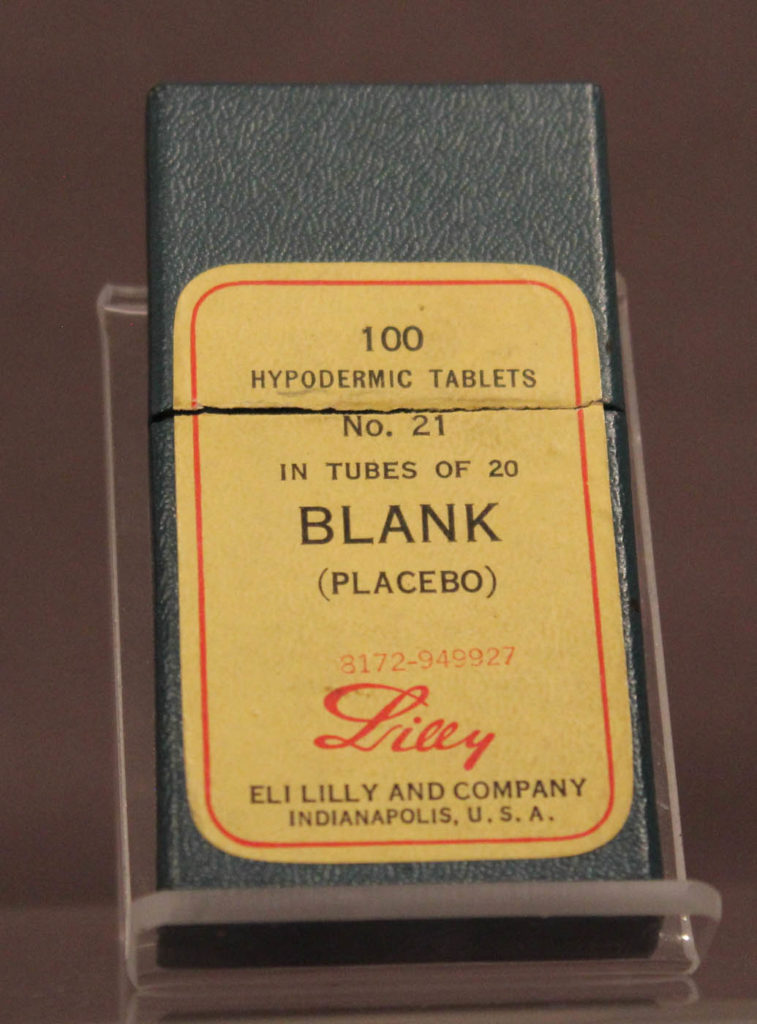
Like the word dirge, placebo has its origin in the Office of the Dead, the cycle of prayers traditionally sung or recited for the repose of the souls of the dead. The traditional liturgical language of the Roman Catholic Church is Latin, and in Latin, the first word of the first antiphon of the vespers service is placebo, “I shall please.” This word is taken from a phrase in the psalm text that is recited after the antiphon, placebo Domino in regione vivorum, ”I shall please the Lord in the land of the living.” The vespers service of the Office of the Dead came to be called placebo in Middle English, and the expression ‘sing placebo’ came to mean “to flatter, be obsequious.” … Placebo eventually came to mean “flatterer” and “sycophant.”
The term entered medical history in the late 18th century, with a few British doctors that can claim to be the originator. For one, there is Alex Sutherland (born before 1730 – died after 1773) a doctor living and practicing in Bath, Summerset, who used the term to describe certain types of doctors keen to prescribe fashionable medicines such as waters with healing power, which he called “placebo” (doctors) in a popular book published in 1763. About the same time, William Cullen (1710 – 1790) from Edinburgh, Scotland, used it for the first time in a textbook, his Clinical Lectures: He gave a patient mustard powder as a remedy noting “… that I did not trust much to it, but I gave it because it is necessary to give a medicine, and as what I call a placebo,” summarizing today’s entire discussion in a single sentence: Placebos are to please the patient and improve symptoms because of that – what we call the placebo effect. And the third gentleman is John Coakley Lettsom (1744-1815), a doctor from London who resumed a similar position to Cullen; they used placebos of ineffective doses of what were popular medicines of their time.
More on this fascinating history, including the inclusion of placebo in the earliest forms of homeopathic practice, here.

